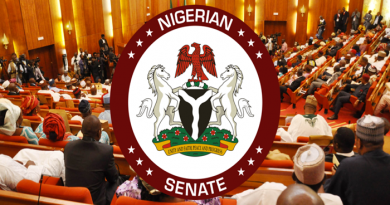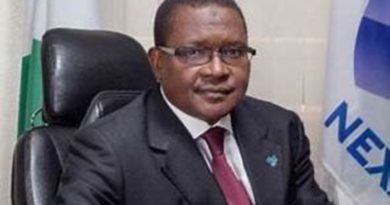N2.24trn capital expenditure in 2017 budget, not enough to exit recession–Experts
By Abdul Olalekan
Economic experts, though applauded the Federal Government for earmarking N2.24 trillion for capital expenditure in the 2017 National Budget, believe the quantum is not enough to take the country out of recession.
The experts, who spoke in an exclusive interview with Business 247 News Online, noted that it will take more than N2.24 trillion to put the economy back on the path of recovery.
The Country Director, Nigerian London Business Forum (NILOBF), Prof. Chris Onalo, while stating that this is the first time the country would be budgeting so much on capital expenditure, urged the Federal Government to judiciously used the money to carry out specific projects that will aid economic growth and development.
According to him, “What we need actually in the country today is the ability of government to fund capital projects. Over the years, we have seen recurrent expenditure taking the largest chunk of the budget, which has never taken us anywhere. We still remain a consuming economy, we fund our consumption so much and I think that gradually, we are shifting away from that path. It is better for the government to empower the people and build more entrepreneurs than making people live from hand to mouth in the name of receiving salaries and wages.”
He, however, advised government to block all loopholes to ensure that the last kobo of that money is used for capital projects meant for.
Believing that government is the catalyst and credit managers are the managers of the outcome of that catalyst, Onalo, who is also the Registrar, Institute of Credit Administration of Nigeria (ICA) said, if the capital projects are funded, it will give rise to job and wealth creation.
“New businesses will spring up, more manufacturing and industrial companies would be established. And as they produce in large quantity, competitive market would become the face of the economy. Then, people will now have to go into credit option to sell their products and services. And as they seek the option of using credit, the machines would be put into continuous use and then credit managers would come in to manage the process by saying, ‘we would manage your selling method, take a good or a service today and pay for it tomorrow,'” he pointed out.
Moreover, the Managing Director, Anchor Insurance Limited, Mr. Mayowa Adeduro, noted that the N2.24 trillion will not do much especially when devaluation of Naira and inflation are factored into it.
“The amount is not enough. The power sector alone needs estimated $5 billion investment to make power generation constant in the country. We need a lot of investment in water, especially in a country where about 80 per cent of its people don’t have access to clean water. So, in my view, much as we commend the FG for this initiative, but again, if you weigh the quantum by the exchange rate and inflation, you will see that it may not be as much as what is projected,” he stressed.
Another key lacuna, he said, is that more than a quarter of the 2017 budget is going to be funded by loans, and that if the loans(both local and foreign loans) did not materialise, the country may find it difficult to implement the budget and carry out capital projects spelt out in the budget.
According to him, “Again, it depends on the oil price, it may plummet below the target. It depends on the quantity we produce. But the projection of 2.2 billion barrels per day, to me, is an over estimation in a country where the Niger Delta militants are bombing oil pipes and facilities. On a normal day, that is even the peak of our production. By and large, we commend the government and urge them to quickly start the implementation of the budget. However, it will be too optimistic to say that this will take us out of recession in one year.”
He, however, reasoned that if the capital projects are carried out to its fullest, it will create a conducive environment for both local and foreign investors to come into the country and establish businesses, saying, this will lead to more demand for insurance products and services. In the long run, insurance industry will benefit from such economic development and the current diversification plan of the federal government, he said.




